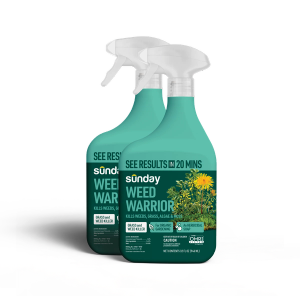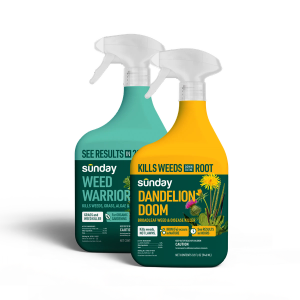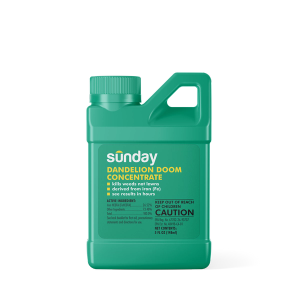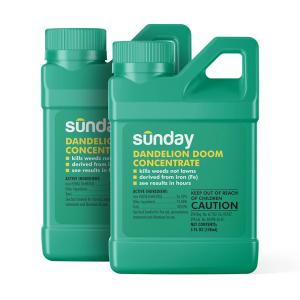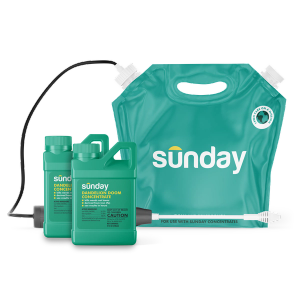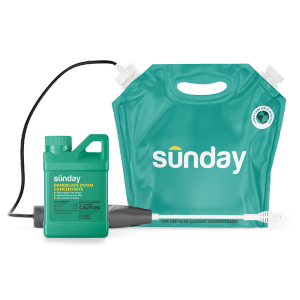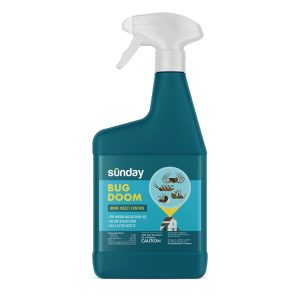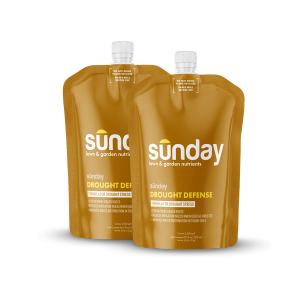What is glyphosate?
Glyphosate is a non-selective (definition: kills every type of plant) systemic (definition: transferred throughout the plant) herbicide. Essentially, it’s a type of chemical compound that can kill most plants when applied at specific concentrations.
It's widely used in agriculture, aquatic environments, right-of-ways, airports, native landscapes—and many residential backyards. Glyphosate doesn’t degrade quickly once in a plant. This means glyphosate stays in the plant until it dies. It does not persist in the soil and it degrades quickly in organic matter.
The problem with glyphosate
While all pesticides can carry potential health hazards, glyphosate is unique in its overuse and market dominance. Our collective reliance on this chemical has diminished, and in many cases, completely replaced nearly every alternative weed management practice.
Reliance on glyphosate in agriculture has resulted in over 140 different weed species becoming resistant in the US alone. Unfortunately, rather than seeing this as a sign of the complications of chemical over-application, it has only accelerated the arms race between humans and pests, where stronger and more potent chemicals are being developed and applied to our lawns.
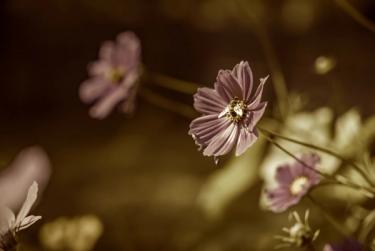
The environmental ripple from widespread reliance on glyphosate is having ecosystem-level impacts. Everything from decreasing populations of birds, bees, and other pollinators, mounting concerns regarding water quality, and impacts on human health, etc. are facing the impacts from overuse and reliance on glyphosate.
Glyphosate and the backyard
Glyphosate is designed to control plants in areas where you don’t want them growing and it is an excellent plant killer. It was only a matter of time before the same strategy was applied to our backyards as spot treatment on hardscape areas or targeted application within a garden or flower bed. Spot treatment of weeds in lawns with glyphosate does not make sense because it will easily kill all nearby lawn grasses.
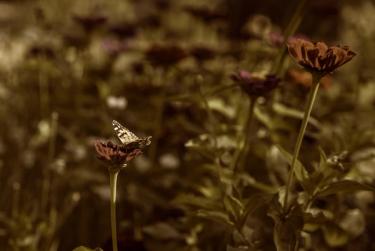
Why Sunday doesn’t use glyphosate
At Sunday, we believe that pesticides like glyphosate are not necessary in lawn care. We do not want to contribute to the continued use of ingredients like these. That’s why we provide alternatives to glyphosate. The Sunday alternatives to glyphosate were developed for a few reasons:
- Simply put, we won't ever formulate herbicides using harsh chemicals like glyphosate. We prefer safer alternatives that don't require yellow pesticide flags after application.
- We promote using an integrated pest management approach that reduces reliance on chemicals and encourages always starting with non-chemical practices.
- We're reenvisioning our relationship with backyard weeds. Not all weeds are bad, and not every weed needs to be eradicated—especially with harmful pesticides.
The Sunday alternatives for weed control
We’re doing our best to limit the amount of harmful chemicals you apply near your home and onto your lawn. That’s why Sunday developed two different weed control products for your lawn that target undesirable plants while making sure you’re not over-applying pesticides on your lawn and gardens.
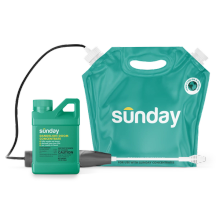
Dandelion Doom
- Kills most broadleaf weeds
- Controls moss and disease
- Safe to use on lawns!
- Derived from iron (Fe)
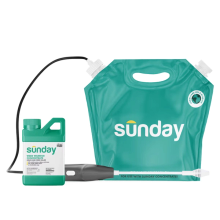
Weed Warrior
- Kills grass, weeds, and moss
- OMRI-listed for organic gardening
- Non-staining for hardscapes
- Made from herbicidal soap
Better for people, pets, and planet
While the long-term effects of ongoing glyphosate use are much debated, we believe that it is not worth the risk—especially just to remove a few weeds.
Culturally, we’ve reached a place where “business as usual” isn’t a good path forward. It’s time to rethink how we treat the planet. Luckily, that can start right in our backyards. Sunday is dedicated to thinking differently and creating better lawn practices that are easy to use. That way everyone can grow a lawn that is better for people, pets, and the planet.
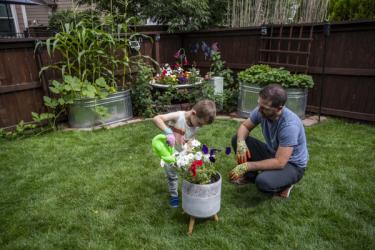
Cited sources
Glyphosate (Roundup): Understanding Risks to Human Health. PennState University Extension.
Glyphosate General Fact Sheet. National Pesticide Information Center.
Let's get growing
Our lawn engine uses satellite data to map out your lawn size and determine things like average rainfall, common weeds, and pest activity.







